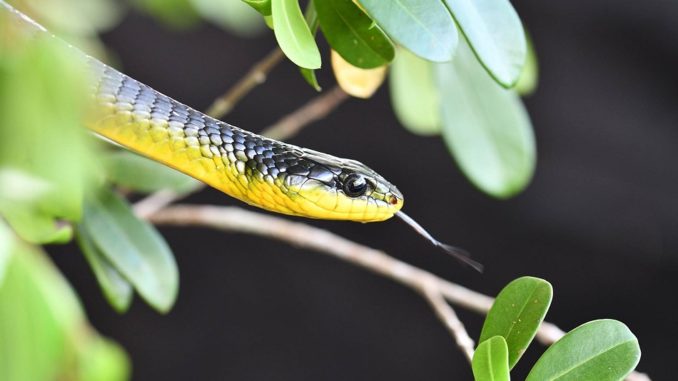
Since this is not the most common subject of conversation, not many people know about the excretive routines of snakes. But poop is an important part of life, for any living creature. If it doesn’t work properly, it can cause major health issue and place the snake (in this case) in danger. Did you know that snakes only have one organ for mating, laying eggs, excreting liquid and solid waste? It is called the cloaca, which is the Latin word for ‘sewer’. Let’s see how many things you can learn about snake poop from one article.
Although all living creatures have to poop, the time between toilet breaks vary grandly between each species. While we humans usually go at it at on a daily basis, birds can do it 40 to 50 times a day, on small quantities each time. However, the snake is quite different in its rhythm. In fact, some researchers suggest that snakes are among the least pooping creatures since it might go just once a year. This is partly due to the fact that he doesn’t eat as often as we do, but also in large part because of its digestive system which is quite efficient.
The Snake Digestive System
The snake digestive system has practically evolved over millions of years, in order to increase its survival chances. It is set-up mostly like a human one. But snakes do not chew their food; they swallow it whole before entering a long digestive phase. As a side note, it is interesting to know that a snake can dislocate its jaw if its meal is too big.
Just like humans, snakes have an oesophagus and a windpipe, which permit them to eat and breathe separately. They also digest their food using stomach acid, like we do. The one thing that really separates us, is the length of time that the food remains inside the body, which is much longer for the snake. They also have intestines to take all the nutrients out of their food, just like we do.
Back to their poop! Snakes also experience muscular contractions before excreting. These tensions help moving the digested food along the tract and out the cloaca, which is located at the beginning of their tail.
Accumulating Energy to Survive in Between Meals
Snakes hunt preys which are usually bigger than them. As we explained earlier, it is possible for a snake to dislocate its jaw, so that it can swallow its meal. What is fascinating is that it can gain 3 to 4 times its body mass in one meal. Once that is done, the digesting phase starts and can last a very long time.
The fact is that, through time, snakes have developed their digestive organs into extremely efficient functional units, enabling it to grow exponentially within a very short time and return to their original state when they digestion is done. By doing so, snakes are actually accumulating lots of energy which can be used to survive for long periods of time, if they can’t find food.
Why Do Snakes Poop Infrequently?
The main explanation comes from the snake diet. Since they can’t always find a prey, they eat infrequently, sometimes only a few times a year. Only once do they find prey, swallow it whole and digest it, will they end up pooping. The amount of time it takes them to do so, depends on the snake species. The bigger they are and the longer it takes. Rat-snakes will take about two days between eating and pooping while bush vipers will take between 3 to 7 days.
The larger snakes, such as boas and pythons, can keep their excrements inside for months and, sometimes, for even longer than a year. Explanations as to why they do so, are not clear. Some scientists believe that it is a defense mechanism while others suggest that the added weight at the back of the body provides them with a better counterweight, which allows them to strike at their prey more efficiently.
Another theory is that they keep their feces to better conceal themselves. Snake poop, like most, has a very strong smell that could give away their location to those that prey on them or to the ones they prey upon. The element of surprise being a key element to their attack technique, it is better for them not to be noticed through traces of poop.
It is a known fact that some snakes actually switch off their digestive tracts between meals. Since they know that they won’t need them again for a month or more, they keep their energy for other purposes. Though poop might not be the easiest subject to broach, it is definitely a fascinating one when it comes to snakes, as we hope you now agree.

Leave a Reply